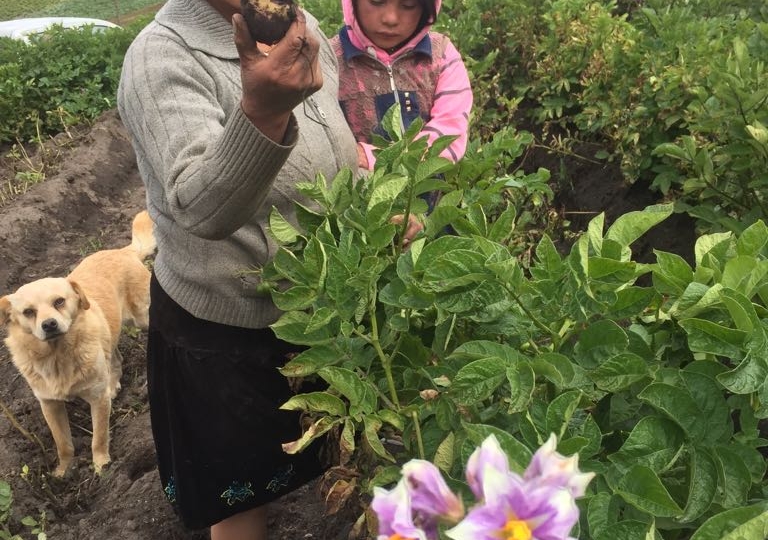
Understanding Potato Seed Degeneration in Ecuador (studentship)
Lead Organization:
International Potato Center (CIP)
Partner Organizations:
Wageningen
Community of Practice:
Duration:
11/2013—11/2015
Overview:
CCRP funding will be provided to support the enrollment of a student in a two-year M.Sc. program in Plant Science at Wageningen University, which will start in February 2014. The student’s thesis will quantify the effects of the accumulation of soil- and tuber-borne pathogens over time, which contributes to significant reductions in potato yield and increases in seed degeneration.
Currently, the paradigm for controlling potato seed pathogens proposes focusing on strengthening formal seed systems that make commercially available virus-free seed. However, this paradigm is not applicable in the Andes because less than 2% of the potato seed come from formal systems, and certified seed is only available for a few improved varieties, while nonexistent for the hundreds of native varieties that farmers grow.
Grant Aims:
The thesis research will be embedded in a larger International Potato Center (CIP) research project on potato seed degeneration in China, Kenya, and Ecuador. It will empirically test a hypothesis that emerged from previous undergraduate research — also supported by CIP through their CCRP funded project — concerning the possibility that some viruses may actually have a beneficial effect on productivity. The thesis matches the CCRP approach of supporting practical research that is locally relevant to small farmers while leveraging and contributing to global knowledge. Research results will be valuable to make improvement in both formal and farmer seed systems.
Outputs and Outcomes:
Data generated under this research will be used to develop quantitative models and decision support systems to improve on-farm seed management. The thesis will be distilled into at least one research paper published in a peer-reviewed journal.